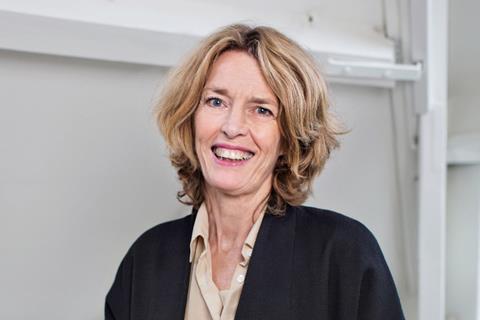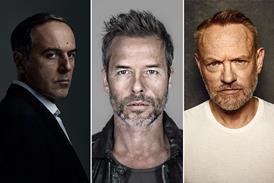
Ask Adriek van Nieuwenhuyzen, head of industry at International Documentary Film Festival Amsterdam (IDFA), about the mood among professionals on the eve of this year’s industry programme (November 15-19) and she says there is some wariness but also ” incredible passion” within the sector.
“For many, it is a tough time,” she says. “At the same time, the majority of people working within this industry strongly believe in the essential value of documentary filmmaking for our democracies. That is what makes people keep going. We realise documentary and art are essential within society.”
Documentary-focused sales agents are especially beleaguered and Van Nieuwenhuyzen suggests market forces that hit other parts of the industry first may now have caught up with them.
“What was already a reality for filmmakers and producers for quite some years - that they had to do other jobs besides creating their films - has now become more of a reality for other people in the business, such as sales agents,” she says. “The fact that there are fewer and fewer big distribution deals and that television is getting harder and harder to sell to is affecting the sales agents.
Nonetheless, the number of high-profile buyers in attendance at IDFA this year suggests there is still an appetite for documentaries. For example, US attendees include Kyle Hentschel, director of development at Time Studios, the film, studio and immersive arm of the Time brand, New York Times commissioning editor Yvonne Ashley Kouadjo, Netflix commissioning editor Kate Townsend and National Geographic Documentary Films vice president Tim Horsburgh.
Higher submissions, political themes
This year, as filmmakers scramble for funding, the Forum, IDFA’s documentary project pitching and financing event (November 16–19) has received more submissions than ever before, with around 850 projects submitted from around the world.
“What stands out is the great variety both in topics and the way these films are being told,” van Nieuwenhuyzen says of the 51 titles selected across the various sections, some huge in scope and some with very small budgets. “Post-Covid, there were a lot of purely personal stories. Now, filmmakers are more interested in politics, power structures and how history affects today’s society.”
Palestine is relatively strongly represented. “Unfortunately, with the world in turmoil, that is a reason for documentary filmmakers to go there to make films,” she says, pointing to such projects as Bilal Alkhatib’s My Name Is Khalil, about a young man growing up in the shadow of his brother martyred in the first Palestinian Intifada, or Untitled Watermelon Project, in which a Gaza-based journalist documents the unfolding atrocities.
Some individual Israeli professionals are expected at IDFA, including XX and Xx even if the festival is refusing accreditation to those working for organisations funded by and affiliated to the Israeli government.
“We are really sorry that people did not accept our personal invitation to come as an individual and to have this dialogue, but others have chosen to come,’ the industry head notes.
Several filmmakers have new docs exploring the rise and impact on society of authoritarianism and the growth in popularity of far-right political movements. One notable Forum title The Face Of Power , by UK director James Jones, which uses rare archival footage to chart the rise of Vladimir Putin.
New home
The Forum is yet again on the move. After several editions in the splendour of the 18th century neo-classical Felix Meritis building, the event is relocating this year to International Theatre Amsterdam (ITA).
“Being in the historical city centre of Amsterdam means it is very difficult to get venues at a reasonable price,” van Nieuwenhuyzen explains.
The downside is that the Docs for Sale market, which has moved to IDFA’s home base The Documentary Pavilion, and Forum won’t be in the same venue but, she says, “It’s a beautiful 10-minute walk through the park.”
Talking shop
As well as providing one of the main annual platforms for pitching and selling documentaries, IDFA remains an important talking shop for industry professionals. Over the coming days, there will be industry sessions on topics from alternative distribution models and the ethics of AI in documentary to obstacles and opportunities for fairer coproduction models.
As van Nieuwenhuyzen emphasises, IDFA brings together like-minded professionals who share the same ideals - and who have the same tenacity.
“When you are organising a market like ours, you feel the drive of people to make films and to make them for the widest possible audience,” she says. “No one stands alone. I think that is crucial, for people coming to IDFA, that they feel they are part of that community, a community that shares the same vision.”

























No comments yet